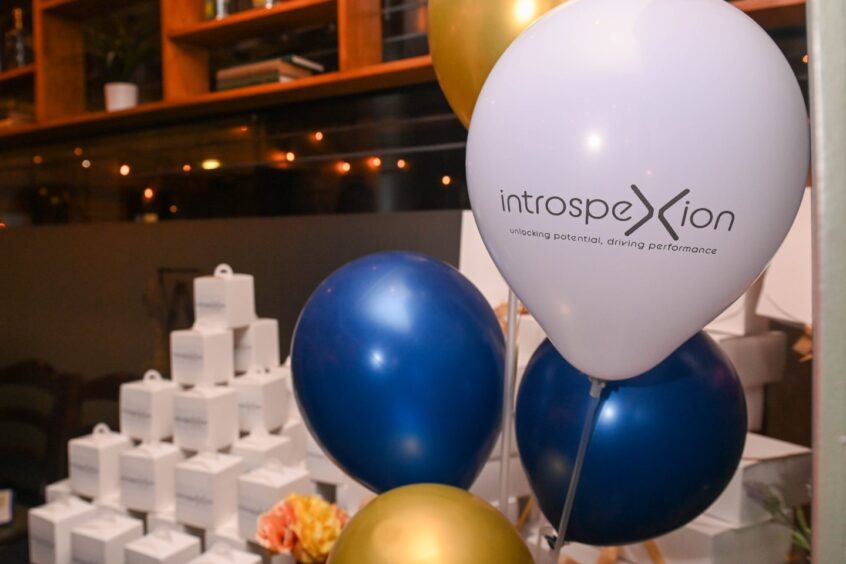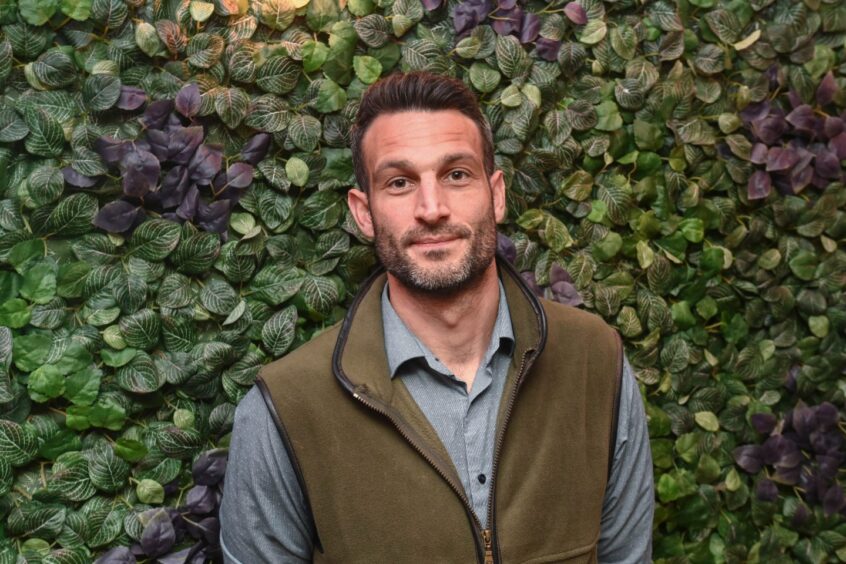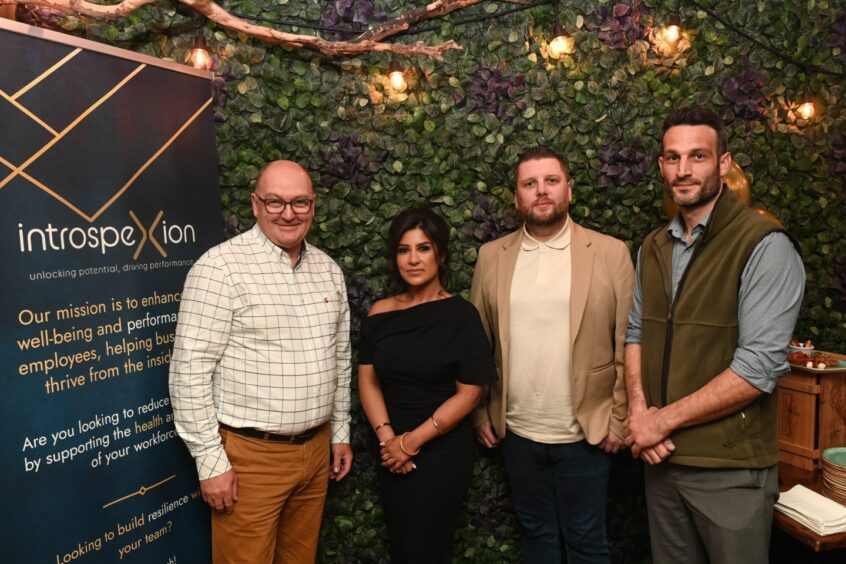
As specialist offshore mental health consultancy firm IntrospeXion launched, business leaders were told “mental health truly does matter and it’s really under-supported right now.”
Psychologist Shabnum Hanif launched her latest venture at an Aberdeen event attended by energy firms and the local business community.
Hanif said: “On our remote and isolated staff offshore, what we ask people to do isn’t normal and we’ve normalised it.
“People are isolated, they’re away from their homes and their loved ones. How can we better support them?”
The event was held in the function room of the city centre Italian restaurant Al Fresco and welcomed speakers from TotalEnergies, Aberdeen Football Club and the Our Union Street campaign.
Hanif said she launched the business to really champion mental health in the workplace” and to support “positive and proactive mental wellbeing”.
The firm’s founder added that “mental health truly does matter” as she explained how men are disproportionately impacted by mental health issues.
In a male-dominated industry such as oil and gas, it is important that firms provide the proper support for their workers, Hanif explained.
In a report last year, trade body Offshore Energies UK (OEUK) said women make up less than 4% of the offshore workforce and the International Association of Drilling Contractors (IADC) found that 40% of offshore workers reported suicidal thoughts while on duty.
Building up ‘resilience’ in a turbulent time
Andrew Beckley, lead operations HSE advisor at TotalEnergies, shared his experiences of working in a high-stress environment as he reflected on his time offshore.
Beckley said: “Life at the moment is hard, it’s challenging. Everything costs a fortune, everybody’s got their own challenges, socially, at work, whatever the case may be.
“We are seeing that in our workforce as well, in addition to home life, we’ve got a lot of stuff going on offshore.”
He recalled his career as a driller and spoke about the “resilience” he had to build in order to deal with the pressures of being in that line of work.
“I guess we had to build resilience pretty quick over a period. Drilling is very up and down. So, you’d be sitting at your desk, and you don’t know if you would be the next person that got the tap on the shoulder.”
Beckley was referring to a period of time where redundancies were common within the oil and gas industry and recently, difficult times are facing the workforce again as warnings from businesses and trade bodies estimate that tens of thousands of jobs could be at risk due to the government’s rulings on the UK’s hydrocarbons sector.
“It is coming and we’re seeing it and there is a lot of change and it’s happening pretty quickly,” he said.
“We’ve got a lot of external pressures; we’ve got a lot of challenges with government and what’s right and what’s wrong and so on and so forth.”
Due to this, the TotalEnergies man said that the industry needs to “adapt and change”, however, this is something people often find difficult. He confirmed the French energy giant is now working with IntrospeXion.
“We’ve got Shabnum starting to go out to our sites. What we’re doing at the moment is we’re focusing on the sites that have had the biggest change,” the HSE boss explained.
Hanif is also working on installations that have experienced emotional upsets such as those where “colleagues have passed away suddenly,” Beckley added.
Mental health and business
It is not just the energy sector that is hit by mental health issues, attendees heard.
The CEO of Aberdeen Football Club Alan Burrows shared his experience of supporting a colleague through a time of mourning after people close to her committed suicide.
Burrows explained that in his previous post as boss of Motherwell Football Club he ran several campaigns to raise awareness of mental health issues and how people experiencing them can receive help.
Finally, TEDxAberdeen curator, Our Union Street boss and former managing director of STV and Grampian TV, Derrick Thomson shared experiences of working in war zones while making documentaries.
“That’s what it was like in the 80s. Nobody give a sh*t. You were sent to places to do things that you got on with and you took the consequences and you had to cope with them afterwards,” Thomson said.
He explained his discomfort with the idea of business leaders only caring about profit margins as he recounted looking to his fellow TV bosses in the 90s and thinking “Does anybody in this room actually care about anything other than the bottom line?”
The IntrospeXion founder had already explained how neglecting the mental health of workers can harm a business’ numbers.
Hanif told attendees: “Over half of ill health cases are down to mental health challenges.
“Presenteeism is also on the rise. Presenteeism is simply when employees go to work, but they’re not productive, so companies are actually losing money.”
She shared that this causes businesses to lose out on £15 billion per year in the UK.
“As leaders, we can do better,” she continued.
“These numbers are not just data, these are real lives. These are real people and we simply cannot afford to ignore it as businesses.”
Recommended for you

 © Supplied by DARRELL BENNS / DC T
© Supplied by DARRELL BENNS / DC T © Supplied by DARRELL BENNS / DC T
© Supplied by DARRELL BENNS / DC T © Supplied by DARRELL BENNS / DC T
© Supplied by DARRELL BENNS / DC T